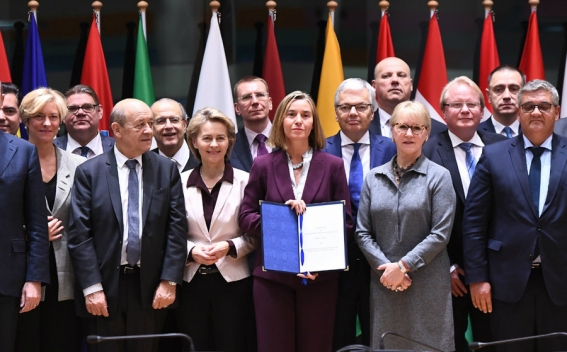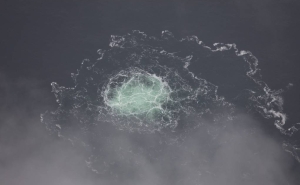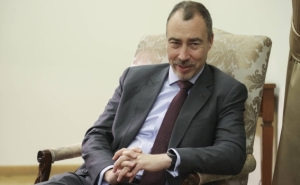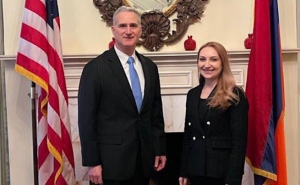Does Joint Defense Plan Mean European Army?

On 13 November, ministers from 23 EU member states (Austria, Belgium, Bulgaria, Czech Republic, Croatia, Cyprus, Estonia, Finland, France, Germany, Greece, Hungary, Italy, Latvia, Lithuania, Luxembourg, the Netherlands, Poland, Romania, Slovakia, Slovenia, Spain and Sweden) signed a joint notification on the Permanent Structured Cooperation (PESCO) and handed it over to the High Representative and the Council. It is possible for other EU member states to join the permanent framework at a later stage.
This means that the EU member states are currently working more closely together in the field of security and defense. Now those EU member states, willing and able, can continue working on developing defense capabilities jointly, investing in shared projects and enhancing the operational readiness and contribution of their armed forces. Actually, this document is the first formal step to set up the PESCO.
It is not about creating "European army", it means that national military capabilities that exercise together can be brought under a single command at a time of crisis.
The document underlines that the "PESCO is an ambitious, binding and inclusive European legal framework for investments in the security and defense of the EU's territory and its citizens". It sets out the principles of PESCO, according to which the EU member states have agreed to regularly increase defense budgets.
Increasing the defense budget seems a key step for the EU member states. According to the PESCO, each country has to provide a plan for national contributions. The participants will be backed by the European Defence Fund that should be worth € 5bn annually after 2020. The money is planned to be used for weapons’ research and equipment purchases.
However it is important to note the United Kingdom is among the five states not participating in the joint notification. The UK is one of Europe's most significant military players. Besides, Britain is the most skeptical about any parallel EU defense structure to NATO, also being on the way out of the EU. Along with this some British politicians and experts welcome the PESCO, finding it a positive step, at the same time adding that there are still disagreements between the EU member states towards the final objectives of the PESCO.
One more important fact is that the US President Donald Trump has urged America's European NATO allies to spend more on their own defense, arguing that they rely too much on the US protection, BBCreports. Besides, military capabilities for the EU states should clearly mean better capabilities for NATO, too. The PESCO can significantly strengthen the European pillar within NATO.
However, the Council of the European Union now has to adopt a decision establishing the PESCO by reinforced qualified majority. This could take place at the next Foreign Affairs Council on December 11.
-
 17:08
17:08The regular session of the Anti-corruption Policy Council takes place in Jermuk
-
 15:05
15:05The Prime Minister sends congratulatory messages to the supreme leader of Iran and the President of Iran
-
 11:11
11:11Armenia sends earthquake aid to Turkey
-
 10:43
10:43Commemoration of the Pontiff St. Sahak Partev
-
 09:16
09:16Some roads are closed and difficult to pass in Armenia
-
 19:55
19:55Phone conversation of the Foreign Minister of Armenia with the U.S. Assistant Secretary of State for European and Eurasian Affairs
-
 18:30
18:30Prime Minister Pashinyan and President Khachaturyan meet
-
 18:20
18:20Ararat Mirzoyan with Co-Chairman of the OSCE Minsk Group of France Brice Roquefeuil
-
 17:01
17:01Humans could land on Mars within 10 years, Musk predicts
-
 16:45
16:45France, US urge 'immediate' end to Nagorno Karabakh blockade
-
 16:01
16:01Blockaded Nagorno Karabakh launches fundraiser to support quake-hit Syria
-
 15:59
15:59Earthquake death toll in Turkey rises to 18,342
-
 15:43
15:43Ararat Mirzoyan Held a Telephone Conversation with Sergey Lavrov
-
 15:06
15:06French president rules out fighter jet supplies to Ukraine in near future
-
 14:47
14:475 Day Weather Forecast in Armenia
-
 14:44
14:44President Vahagn Khachaturyan wrote a note in the book of condolences opened in the Embassy of Syria in Armenia
-
 14:20
14:20Azerbaijan’s provocations impede establishment of peace and stability – Armenian FM tells Russian Co-Chair of OSCE MG
-
 12:57
12:57France representation to OSCE: Paris calls on Azerbaijan to restore freedom of movement through Lachin corridor
-
 11:40
11:40Command of Kosovo forces highly appreciated preparation of Armenian peacekeepers
-
 10:16
10:16The United States withdrew from sanctions against Syria for six months the provision of assistance after the earthquake
day
week
month
Humidity: 51%
Wind: 1.54 km/h









